TO TUSCALOOSA AND BEYOND: A UNION CAVALRY RAIDER IN ALABAMA, MARCH-APRIL 1865 Edited by Edward G. Longacre
(Transcribed from The Alabama Historical Quarterly, Vol. 44, Nos. 01 & 02, Spring and Summer 1982)
For four weeks during the spring of 1865 Alabama and western Georgia became the setting for the largest and tactically the most -successful mounted operation in American military history. During that period some 13,500 cavalry, mounted infantry, and horse artillery under Brevet Major General James Harrison Wilson marched an average of 525 miles across hitherto unscathed Confederate territory, stamping out the last vestiges of resistance in the Deep South. On the expedition this huge, highly mobile command—a forerunner of the Panzer battalions of World War II—captured five fortified cities including Selma and Montgomery, plus 60,000 prisoners, 320 cannon and 100,000 stands of small arms, while destroying dozens of factories, foundries, arsenals, and other sources of supply for the Confederate armies. Cut off from communication with the major theaters of operations farther north, Wilson did not end his journey until arriving at Macon, Georgia, on April 20—almost two weeks after Lee surrendered to Grant in Virginia,
Major James Harrison Wilson (officer of the Federal Army Library of Congress)
The most significant factor in the raid’s unparalleled success was a side expedition conducted against the Tuscaloosa vicinity by 1800 horsemen under one of Wilson’s subordinates, Brigadier General John T. Croxton of Kentucky. Having started from Gravelly Springs, Alabama on March 22 in Wilson’s main column, Croxton’s small brigade was detached for its special mission on the 30th, shortly after the command reached Elyton (now Birmingham). In addition to destroying the military utility of Tuscaloosa, including the University of Alabama—then serving as an academy for Confederate officers—Croxton was directed to lead astray any troops pursuing the main force. These included troopers from the command of Lieutenant General Nathan Bedford Forrest, the Confederate “Wizard of the Saddle,” who were straining to stop Wilson short of Selma, his first major objective.
John Thomas Croxton (Wikipedia)
The 28-year-old Croxton did his job extremely well, sacking Tuscaloosa, then blocking the path of a cavalry division under Brigadier General William H. Jackson and preventing it from menacing Wilson. Marching and countermarching in order to distract Jackson and to avoid a pitched battle against his larger force, Croxton’s three regiments covered more ground than Wilson’s main body. All told, the Brigade made a 653- mile circuit of central and eastern Alabama, passing through villages including Trion, Jasper, Talladega, Munford, Blue Mountain and Jacksonville, and tearing up a great deal of railroad track, before rejoining its comrades at Macon on April 29. Wilson welcomed the prodigal brigade with great glee, praising them and their young leader for their substantial contributions to the success of the expedition as a whole.
Brigadier General William H. Jackson (Wikipedia)
In the following letter, written two months after the raid and here published for the first time, one of Croxton’s troopers provides the most detailed first-person account of this side expedition ever brought to light. The writer, Charles Wooster of Company G, 2nd Michigan Volunteer Cavalry, a 22-year-old native of Hillsdale County, Michigan, had been a veteran of mounted service since the tender age of 18. Following the war, the young man would return to his home region to attend college and teach school, before moving to Nebraska to forge careers in farming, journalism, and politics. By the time of his death in 1922, Wooster would be remembered as an influential newspaper editor and owner and as a Nebraska state legislator.
Private Wooster’s letter is part of a large collection of his correspondence, diaries, manuscripts, newspaper clippings, and miscellaneous material reposing in the Nebraska State Historical Society, Lincoln. The editor has left intact most of Wooster’s eccentricities of spelling and syntax; only paragraphing and essential punctuation have been added. *
Macon Ga. June 25th ’65
Brother John, It has been my intention to write you a good long letter and tell you all about the great cavalry raid in Ala. and Ga.; but it seemed like such a task that I kept waiting for a good opportunity and a time when I should feel just like writing. Of course neither of them came, and now I have concluded to wait no longer but to go to work and write a few things for your -special benefit, and such as are not likely to be published in the papers.
It is always tiresome for me to write details, and in fact it is very seldom that I do it. I[t] seems to me as though I could never learn to compose so that I could sit down and write for three or four hours at a time, and enjoy it; and this is one reason why I wish to learn Phonography so that I can write a-s fast as I can think, and as I feel here very much of the time I don’t think it would require a bit over 200 words in a minute, the number which a first class reporter is suppose to be able to write.
But if I remember rightly I proposed to tell you a little story, and so I will begin.
On the 21st & 22d of March Gen. Wilson’s Cavalry Corps, M. D. M.—Military Division of The Miss[issippi]—which had, since the expulsion of [Confederate General John Bell] Hood from Tenn., been preparing at Waterloo and Gravelly Springs, for a campaign, marched from Chickasaw Ala. [just below the Tennessee River from Gravelly Springs] in a Southerly direction. This corps was composed of the 1st, 2d and 4th divisions under the command of Generals [Edward M.] McCook, [Eli] Long and [Emory] Upton, respectively, and numbering about 18000 thousand [sic] men.
The command kept together until it reached Elyton, a little town situated in a rich valey east of Black Warrior [River]. We made very good time, but could have done much better if it had not been for the waggon train, which hindered us one day so that the column made only five miles; and towards night the entire 2d Mich, was dismounted to help it through a succession of mud holes. No rebels were met in force but quite a number of officers and soldiers who were scattered about the country conscripting were picked up. I was a little surprised at our not being bushwhacked; but in all the campaign I do not remember of a single instance of it.
We expected that after the first two days march from Chickasaw we would be in a rich country where plenty of forage could be found for our horses, and plenty of ham, potatoes &c for ourselves; but in this we were much mistaken. With one or two unworthy exceptions the soil is very poor and much broken. A great deal of the land is untillable, and almost invariably covered with a light growth of oak and pine. The pine is not generally large enough to saw, though in some place [s] very fine trees are found, but [they] would not probably make good lumber, except for rough work, as they are what is called Pitch, or Yellow pine and very hard when dry.
The people wear homespun and are gennerally quite ignorant; so much so that they often took our men for rebels, not acting as though they had ever heard of such a thing as a U. S. uniform. One day as we had halted near a house and were feeding the band began to play, when an old man came running up from the fields in a great fright, probably thinking that some horrid thing from the infernal regions had appeared on earth. As soon as he became a little cool, in answer to inquiries, he stated that he had never heard a band before and didn’t know what it was.
Crossing the Black Warrior would have been quite an interesting proceeding to one not accustomed to such things, The ford was quite deep and very rough, [and] the current being rapid a number of horses and mules were carried down stream and lost; their riders gennerally succeeded in getting out, though I think that from the whole command several were drowned. One old rack [wreck] of a horse fell in the middle of the stream with an Irishman belonging to our company; after a .short strugle he succeeded in loosing himself from his horse, and catching another which was passing, by the tail was enabled to reach the opposite bank. He was no swimmer and was considerably frightened; in passing a deep place he was drawn under, but kept fast to his escort, and on coming to the air again he cried out lustily: “0, be jasus! I’m drownded now! I’m drownded now!” The boys afterward made much sport of him, as he was one of those persons who don’t believe they will die till their time comes; besides, an old witch had told him that he would never be drowned, which he had great confidence in.
At Elyton our brigade—Croxton’s, 1st [Brigade, First Division, Cavalry Corps, M. D. M.]—was sent in the direction of Tuskaloosa to take the attention of Gen. Forrest, who was known to be in that vicinity, while our main force under Wilson crossed a range of hills to the east and running paralell with our line of march, with the intention of outmarching Forrest and getting into Selma before him. When about 20 mi. from Tuskallosa we ran [a] foul of the rebel Gen. Jackson with two divisions [sic] of cavalry. As it was about night we halted, went into camp and laid [over] till morning, neither party seeming to desire a fight that evening.
As soon as it was daylight (April 1st) the men were in their saddles and were moving away, but were not quick enough for Jackson; for during the night he had formed his lines around our camp, by the light of our fires, was up as early as we, and [was] moving to the attack. It was not Croxton’s policy to fight and therefore he drew off in the direction of the Black Warrior river, which he reached the same day at a point about 30 mi. above Tuskaloosa. Jackson folowed us till about noon and then left us, probably turning his attention to Wilson. In this encounter we lost several men from the 6th Ky. [Cavalry].
We recros [sed] the Black Warrior [to the northwest, before turning again south]. It being unfordable, and having but one little ferry boat, we were obliged to cros our equipments in it and to swim our horses. This was a novel sight. The horses were stript of everything, even to their halters, driven down to the water like sheep and pushed in one after the other and sometimes on top of one another; the [y] would go over . . . and once started they would continue crossing all day, providing they were kept well “closed up.”
Black Warrior River near Tuscaloosa, Alabama
The command being all over and having a good nights reast it starts for Tuscaloosa. When within ten miles of there we stop and feed and wait for dark. In the meantime the Gen. send out a scout and captures a man who has that day been in town; he reports 500 men there, and also that there was nothing known of our being in the vicinity. As soon as it is fairly dark the column advances; the Moon is soon up, the road is good and we have a splended ride.
On arriving with [in] about a mile of town a halt is made, and parties are sent out to reconoiter. All being in readiness the column again moves forward. As it nears the town another halt is made and the 2d Mich is dismounted, that being in the advance. The Gen. decides to capture the guard at the bridge [over the Black Warrior, northwest of the city] alive, if possible, and for that purpose two volunteers are called for from Co. G.; myself and one other thinking we would try our hand, divest ourselves of all superfluous equipments which might impede our movements, leave our guns and each with a revolver in his hand and a negro to guide us, we start for the bridge, folowed by good support within hearing distance.
We strike the river first and then move cautiously down; being within about thirty feet from the entrance of the bridge, we hear the guard slowly walking out. As he steps into the light he looks down on us and quickly chalenges: “Who’s there?” “Friends!” I reply, but he couldn’t “see it,” and instantly fired; the ball passed through the crown of my hat, and he beat a hasty retreat through the bridge, folowed by our balls; as our support was up the bridge was cleared, and the man who first fired on us left mortally wounded near its center;—ther were 14 rebels in the bridge, in all. The regiment quickly pass through, and with the assistance of a guide take the rebel artillery—two guns—before they could get their horses harnessed. There was some pretty sharp firing, but we were so fortunate as to lose only two killed and some few wounded.
After our boys had got well in town the 6th Ky. band came up and played “[Ain’t I Glad to] Get out of The Wilderness” for the benefit of the Johnies; they were not slow in taking the hint and the next morning none were to be seen, except a few which we held as prisoners.
A wedding party was in the hight of its glory, when the Blue Coats rudely entered, arrested the bridegroom, who was a Capt. in the rebel army [Captain James S. Carpenter of Kentucky], and others of the gay cavaliers; the female part of the company [including the bride, Miss Emily Leach of Tuscaloosa] was in great terror—the scene had sadly and suddenly changed. I do believe it is a sin, and a disgrace to the Yankee nation, that such proceedings are tolerated.
As soon as the bridge was take[n] I was sent back to carry word of our success, and to get my gun, having done which I mounted my horse with the intention of returning to the regiment. As I was nearing the bridge at a brisk pace, about fifty dismounted men appeared, coming up on a cross street; taking them to be our own boys I kept on and only discovered my mistake when they were quite near me. An old chap who seemed to be their leader advanced a pace or two and the folowing coloquy ensued; in the meantime those about him kept edging their way towards me, with their guns in their hands, and in the dim Moonlight peering curiously at me.
Old Chap: What’s the news?
Myself: I understand there are a lot of Yankees out here a little way.
Old Chap: I suppose you are one of our men?
Myself: Certainly I am.
Old Chap: What road are they on?—
I don’t answer promptly, not knowing the names of the roads and thinking perhaps he would continue . . . [when] the report of a gun is heard at the bridge, they turn their heads, giving me an opportunity of taking a French Leave, which I of course was not slow in improving. The occasion of the guns being fired was that some of the Johnies, turning their attention from me, went towards the bridge; one of the [m] seeing a man standing there, thus accosted him: Oh guard! . . . why didn’t you answer me when I called you?”
… . Replied the guard—throw down that gun!
I’ll show you how I’ll throw it down! returned the reb, at the same time preparing to fire; but the Yank—for such it was—was to[o] quick for him—he dropped both his gun and himself.
During the night only part of the town was occupied by our troops; but as soon as daylight came the whole command was moved over and posted on the principal streets leading into the place, where they remained till the next morning [April 5]. In the interval all stores, government houses &c, were given up to indiscriminate plunder; but I heard of no private dwelling houses being disturbed. Nigger [s] of all sorts and sizes and poor whites could be -seen from morning till night carying away all manner of dry goods and provisions; salt, which was very scarce among the common people, and which could not be bought by them except with silver, was especially sought, and I think most of them obtained a supply. Safes were broke open by soldiers in search of money and valuables. Confederate scrip was flush and every nigger had his pockets stuffed full of it. I heard of one or [more] heavy hauls of gold being made, but such instances must have been very rare, for those having the precious metal took good care to hide it—knowing the prevailing passion of the Yankees.
Early on the morning of Apr. 5th the command was in motion, recrossed the river and burned the bridge, having previously burned the Military Institute [the University of Alabama], a large cotton factory, a foundery, two large tanneries, a hat factory &c. After seeing all these things were done, we marched fifteen miles to the [south] westward and camped for the night.
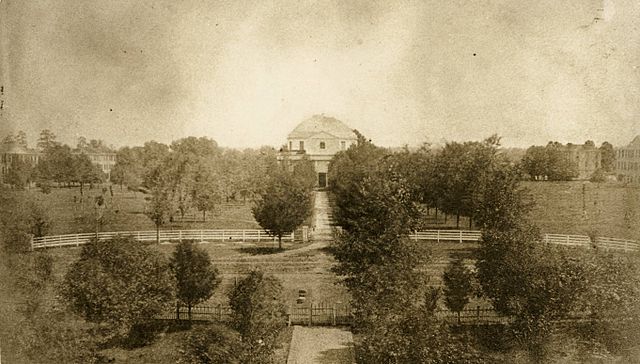
Then came the hardest days march I think I ever made. We started shortly after daylight, marched nearly to Vienna, turned back and did not go into camp till well onto twelve o’clock P.M.; it had rained almost incessantly, the mud was very deep, and besides all that the rebel Gen. [Wirt] Adams had been pitching into our rear during the entire afternoon [with his 1500-man mounted brigade]. The 6th Ky. was our rear-guard; they have behaved in a disgraceful manner, sometimes running [in] to each other, and those in the rear calling to those in advance of them to get out of the way, as the rebels were close upon them. Before night they succeeded in losing two ambulances for us, [over thirty casualties,] and their Major, commanding [Major William H. Fidler, who had been captured] ; this encouraged the rebels so much that they pressed forward with more determination than ever, and it became necessary to check them. For this purpose the 2nd Mich, was halted in line of battle [near the village of Romulus] and effectually did the work assigned them. As the brave boys of the 6th were going back past us they would call out to each other saying: “We are all right now, the 2d Mich, is here!”
The Johnys advanced on us three different times; the flashes of their guns, in the darkness, often seemed to commingle with our own. They found that the programe had been changed and gave up their undertaking as a bad job. One reb, who had probably overheard the Kentucks, was heard to exclaim: “0 God, we’ve got them 2d Michigans to fight again!”— they knew the regiment of old. After this slight protest on our part, they gave us no more trouble.
The morning of the 9th found us on one of the plantations of John W. P. (the name was deleted)—he owned seven—who lived 13 mi. from Tuscaloosa, on the Decatur road. The day before our arrival at this place, four of our men had taken $500.00 in silver from Mr. P., which was recovered for him on his reporting the fact to the Gen., and the greater part of which he expended in buying Confederate money of the boys at the rate of one [silver] dollar for one hundred; he intended to use it in paying his taxes. Wonder what he thinks of his investment by this time? Mr. P. owned over 600 slaves, was very miserly, and was supposed to have several thousand dollars of gold “salted down” in some secure place. Being an Infidel he would not allow his negroes to attend church, nor even to sing and pray in their cabins if he could prevent it; neither would he permit them to be married by a “Squire” or a preacher. Mr. P’s wife was said to be often jealous of him, because of an undue intimacy on his part with two or three of his colored women. The negroes didn’t seem to think the jealous altogether groundless, as there were a number of little mulattoes which strongly resembled their master and were thought by many to be his children.
The evils of slavery on this plantation present themselves in a forcible manner, and though not equal to those portrayed in “Soliman Northrup” [David Wilson, ed., Narrative of Solomon Northrup (Buffalo, N. Y., 1853)] and “Uncle Tom’s Cabin/’ are more nearly so than on any other I have hitherto visited. It was here that 200 negroes who had left their masters, mounted themselves on old horses, and droped into our column, being a clog on our movements, [and] were started in a body without escort for Decatur; we afterwards heard that they had been scattered by guerillas, and it is very doubtful wheather any of them ever reached their destination.
Having left Mr. P.’s our course lay in the direction of Jasper [Croxton having turned northeastward toward Georgia], passing which we turned in an Easterly direction, repaired a bridge over the Black Water, crossed, and continued our march to the Coosa [River], having passed the Sipsy [Sipsey], Mulberry and Little Warrior [forks of the Black Warrior River] by swimming our horses and rowing ourselves and baggage over in canoes. In crossing one of these rivers it was my fortune to have the boat capsize just as it was pushing out from shore, and having my carbine, sabre and 50 rounds of ammunition on my person I found it slightly inconvenient to keep my nose above water until I could get hold of a little sapling which was near by.
All along our march from Mr. P.’s to the Coosa we were continually passing paroled prisoners and stragglers belonging to Forrest’s command; all agreed in saying that Forrest had recieved a terrible thrashing at and near Selma [shortly before and during April 2], they said they never saw men fight so like devils as Wilson’s did, said they ran right over their works and them without even halting, and that in less than half an hour after our advance came in sight Selma was on fire. They were greatly demoralized and had no idea of again returning to the army.
During this part of our campaign it rained a large part of the time, making it very disagreeable marching, it sometimes happening that we didn’t go into camp till 10 or 11 p, m. and then [with] supper to be got, tents pitched, horse [s] tended, bed[s] made &c—all in the rain. The people were generally poor and it frequently required a little head work to get what we wanted to eat. The soil was very much like that I before described, and the timber the same, as a rule. On the Sipsy I observed some fine pine in considerable quantities, and thought a few enterprising Yankees might make a good fortune by erecting sawmills and rafting lumber towards the gulf.
The nicest little adventure I had on this trip happened one day while out with a scouting party. An old planter, having been told by one of his darkies that the Yankees were at a certain place not far distant, and being somewhat in doubt as to Sambo’s veracity, concluded to go and see for himself; with this idea in his head he collected a few citizens, paroled prisoners &c, and set out, mounted on their best horses. Our party having halted at a house, it chanced that these Yankee hunters were nearing us on the same road. I, being in the advance, was first to see them as they were turning a short bend in the road; they suddenly checked their horses as I ordered them to halt, and doubtless thinking they had found the Yankees, as suddenly turned and fled, Mowed by a shot from my carbine. My “war horse,” not being slow on such occasions, was off after them like a whirlwind, but having seen so much service, was unable to overtake them, although not over 20 rd. [rods] distant. Having pursued them over a mile and a half he checked his course and gave up the chase. Such little incidents as this lend a charm to the soldiers life and are an offset to the monotony of camp life.
Coosa River near Wetumpka
Arrived at the Coosa [April 21], it was but a short job to cross the command, [we] having been so fortunate as to capture a chain ferry, in running order. Our regiment was first over and went into camp untill the others had crossed. There it [was] we first heard of the surrender of Lee’s army— Apr. 22; at first the report was discredited, but we soon found that it was on the authority of a Nashville paper which contained the official dispatches. This was good news for us of course, and no one hesitated in declaring the war at an end; but notwithstanding [that], the rebel Gen. [Benjamin J,] Hill day had the impudence to place himself with about 500 in our path [between Talladega and Blue Mountain, near present-day Anniston] and dispute our progress. The third batallion of the 2nd Mich, was in the advance, and disposed of the Gen. in such a manner as not to stop our column, and, indeed, it some of the time had to move much faster in order to keep within supporting distance. The rebels would brake as often as they were charged, and they were charged as often as they stood. In two hours time they were scattered through the woods and none were to be found, many throwing away their arms as they ran. Two men of Co. E took their artillery—one piece—and eight men. Hill’s entire command might have been captured by throwing a regiment on his flank and rear when the action commenced in the morning. Co. B after the action was nearly over went back to bury one of their dead men [reportedly, the last soldier on either side to die in open combat during the war]i and thus got behind the column; in closing up they encountered a little squad of rebels in the village of Oxford, who had collected there after our rearguard had passed through. As they saw our boys coming up the[y] offered to surrender, taking them [Company B of the 2nd] to be the advance of a column; but discovering their mistake, one of them . . . failed in trying to make his escape, [and] was taken and disarmed. Shortly after he attempted to take a carbine from the hands of a soldier who had him in charge and in so doing received three bullets through his body; he stepped firmly aside, sat down,—the blood spirting from his mouth and nose in the meantime—and looking up at one who had shot him, taking him to be an officer, exclaimed, “O Lieut., see what you have done to me,’ and died. His wife, who happened to be in the place, together with other women, gathered about him uttering loud cries, and calling down the vengeance of a just God on the murderous Yankees.
That night the brigade camped at Blue Mountain, the Northern terminus of the railroad from Talledega [the Alabama and Tennessee Rivers Railroad], having marched 25 mi., destroyed the depot at the latter place, and those at other stations along the road; also, two large founderies, one of which was said by the owner to have been the largest in the United States afternoon.
The country in the vicinity of Talledega [is] rich and the planters live in large houses. Wilson’s raid was the theme of conversation among the people and was conceded to be the most destructive one of the war. There was a rumor among them to the effect that Lee had defeated Grant, inflicting on him a loss of 60,000 men, with a proportionate amount of artillery, wagons, &c.; and also that Johnson [General Joseph E. Johnston] had given [General William T.] Sherman a similar drubing, but I don’t beleive they were fools enough to take stock in such reports; if they were, they were doubtless soon convinced of their error.
Remaining at Blue Mountain but one night, the command, after destroying the depot and what quartermaster stores were there, early in the morning [of the 24th] took the back track to Oxford, arrived at which place it turned to the East, and the march was continued without anything occuring worthy of special mention until our arrival at a point 5 mis. from Newnan Ga. During this part of the march only two rivers of note were crossed,—the Tallapoosa and the Chattahoochie [Chattahoochee], the first by means of a bridge, and the second by that of a ferry.
Wilson’s raid in Alabama (John Formby, 1910, Library of Congress)
Before entering Newnan a rebel Capt. passed through our lines bearing dispatches to Gen. Hill, who was Mowing in our rear, informing him of the Armistace between Johnson and Sherman [signed on April 18]. The Capt. stopped in our camp, talked freely, and gave us all the latest news. Word was sent the Gen. [Croxton] from Newnan that our march through that place would not be opposed. Orders were issued directing that all foraging, except by authorized persons, should cease, no more mules and horses were to be taken, all articles of clothing &c which had been taken from cititzens were to be thrown aside, and things immediately assumed a new aspect. Guards were stationed at a favorable point in the road, and in accordance with orders all negroes excepting one to each commissioned officer were taken from the column as it passed along and were left to shift for themselves, not being allowed to folow the command.
As the head of our column neared Newnan the band struck up one of our national airs, the boy[s] marched in splendid order, not a man leaving the ranks, and the citizens were treated to a sight which they will long remember. We all enjoyed ourselves, every one feeling that we were on our last campaign and that it was nearly ended; that the object for which we had so long contended was nearly attained, that soon we should lay by our arms and return to our homes and to peaceful employments, each man his own master.
From Newnan we took the direct road [southeast] to Macon. The weather was fine, as it had been for some time past, there was but very little straggling, the rights of citizens were respected and everything went on well. Gen. Hill folowed close in our rear, and from the fact of his having arrested some of our stragglers and sent them up to their command, he was termed our rear-guard. Soldiers from Johnson’s army were almost continually passing us on the way to their homes. They gennerally felt well and seemed to be glad that the war was at an end, notwithstanding they had been unsuccessful; some of them were sullen enough and would pass along without looking up, or speaking unless spoken to. »
The country was about as level as it is in Wheatland [Michigan] and was all tillable, very different from what we had been accustomed to on the greater part of our march. Roads were good, and for two or three days after leaving the Chattahoochie I noticed that a great deal of izing glass [isinglass] was mixed with the sand so that it glittered under our horses feet like gold.
On the first day of May the brigade arrived at this place and went into camp. Wilson had been here about two weeks, and had heard nothing from our brigad[e], except through rebel sources, since it left him at Elyton. It was supposed that we had been cut to peices and that the remmenant of our force, if indeed there was anything left of it, had escaped to the Tennessee [River] ; therefore they were all glad to see us back again. The principal force under Wilson marched about 450 miles, whereas we marched 750 [sic]. . . . Charles.
iRex Miller, Croxton’s Raid (Fort Collins, Colo., 1979) p. 80-81. [the Chocolocco Iron Works, outside Talladega]. But what do you think pleased the boys more than anything else? Whiskey, of course, which was found in abundance during the war.
ALABAMA FOOTPRINTS – Volume I – IV: Four Volumes in One (Volume 1-4)
SAVE – BUY ONE GET ONE FREE! The first four Alabama Footprints books (listed below) have been combined into one book, Alabama Footprints – Volume I-IV –
ALABAMA FOOTPRINTS Exploration
ALABAMA FOOTPRINTS Settlement
ALABAMA FOOTPRINTS Pioneers
ALABAMA FOOTPRINTS Confrontation
From the time of the discovery of America restless, resolute, brave, and adventurous men and women crossed oceans and the wilderness in pursuit of their destiny. Many traveled to what would become the State of Alabama. They followed the Native American trails and their entrance into this area eventually pushed out the Native Americans. Over the years, many of their stories have been lost and/or forgotten. This book (four-books-in-one) reveals the stories published in volumes I-IV of the Alabama Footprints series.


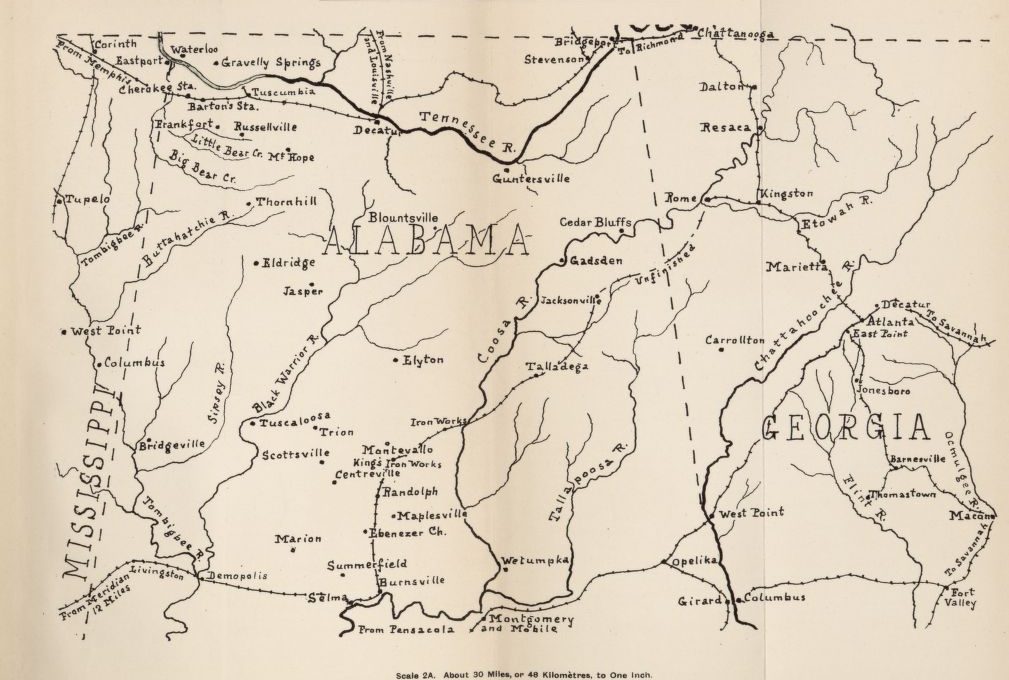
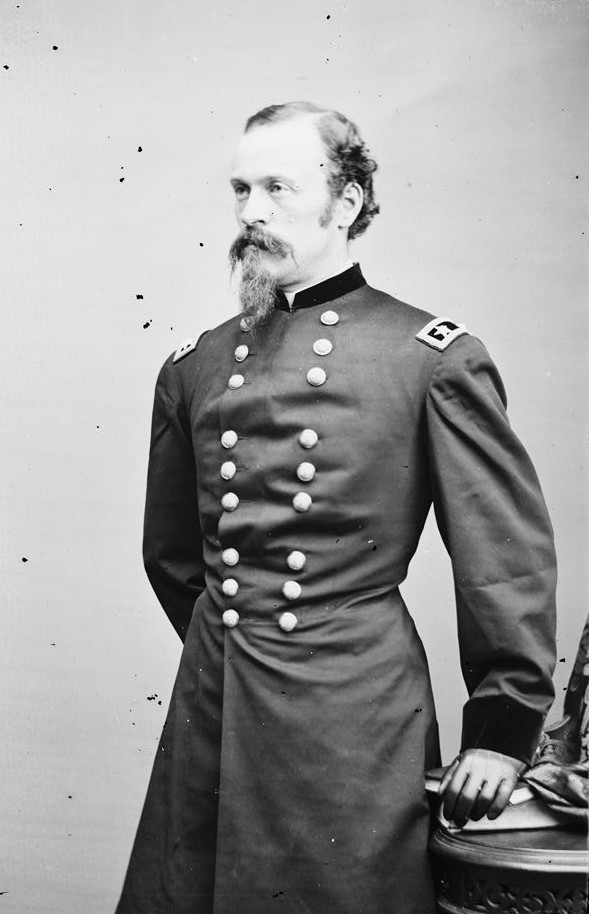
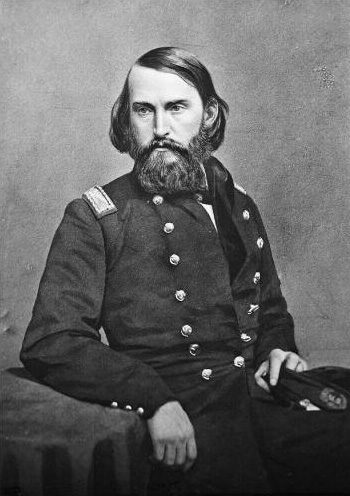
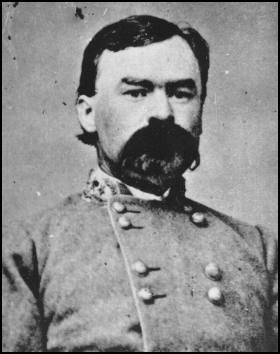
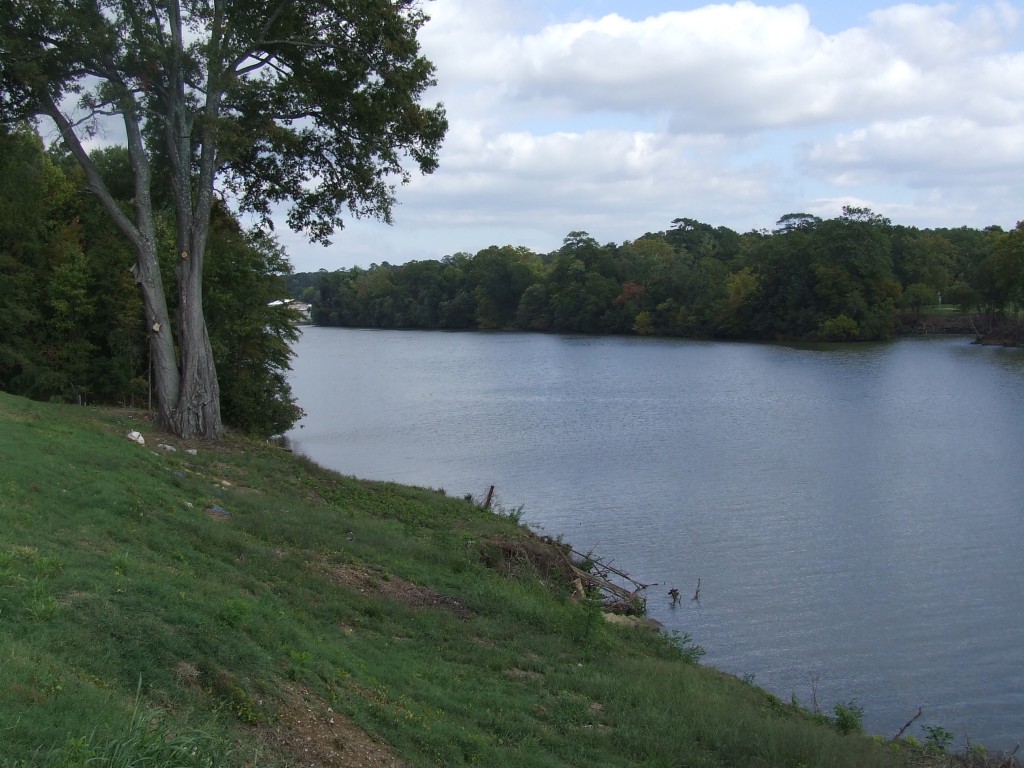
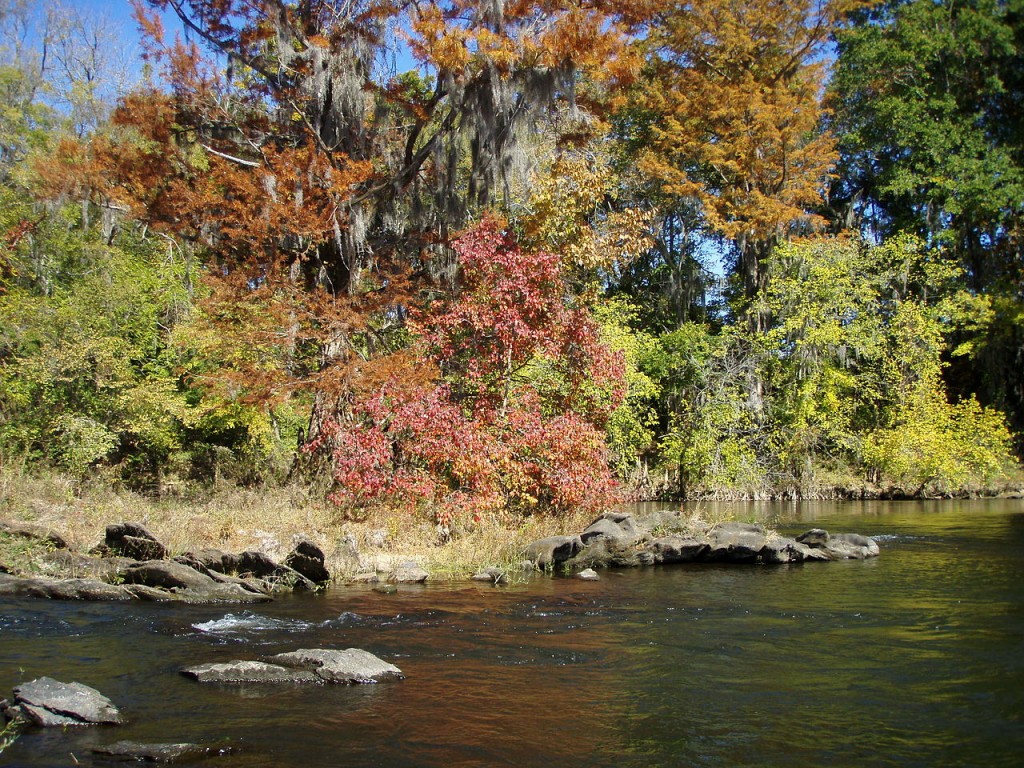
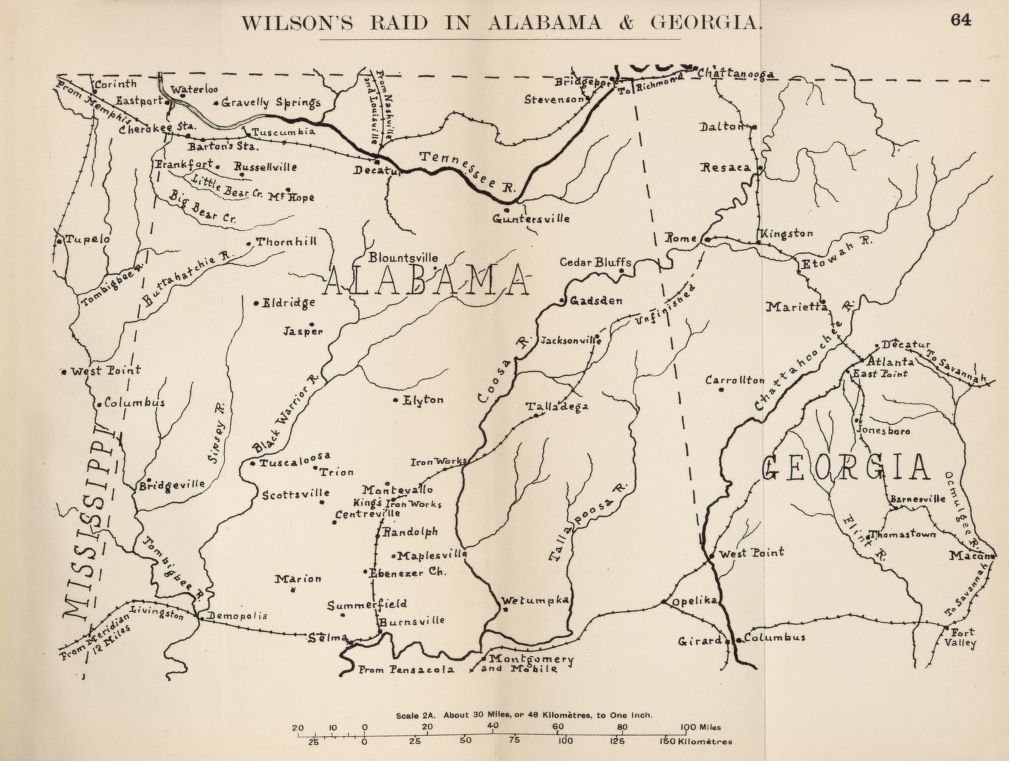
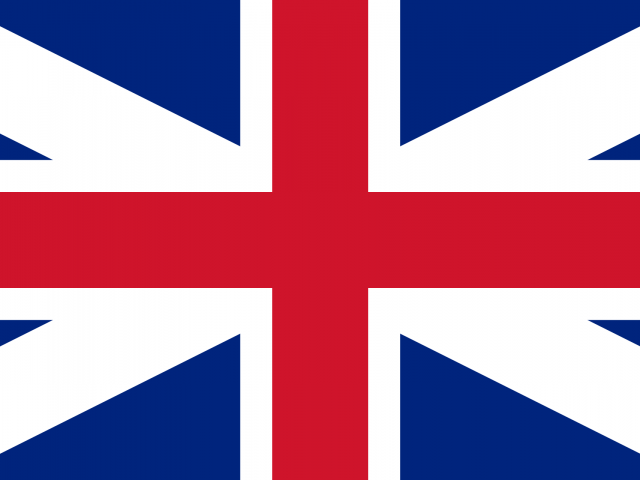
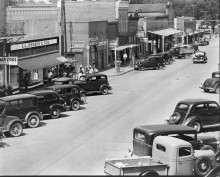
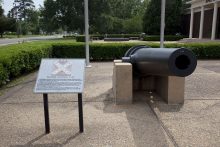
Damn yankee 😡
It’s instructive to know that those from the wonderful “north” could act so despicably, could use the N word, could label folks ignorant, burned a university of higher learning including the library, and relish the mowing down of citizens. Yet, we allow the desecration of monuments, cemeteries, portraits, etc of our ancestors in efforts to cleanse history. These heroes are only heroes because their side won.